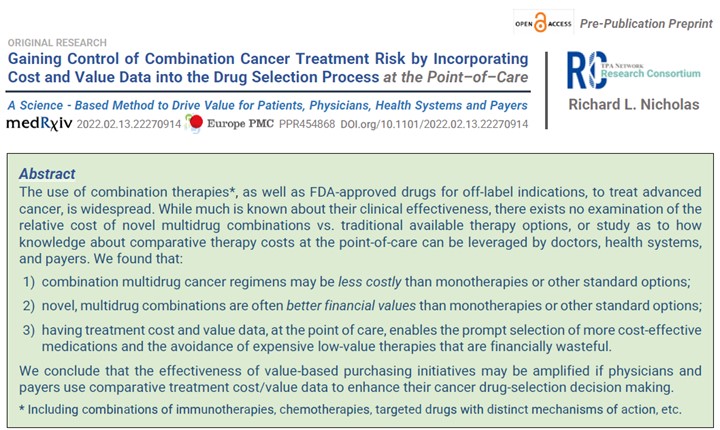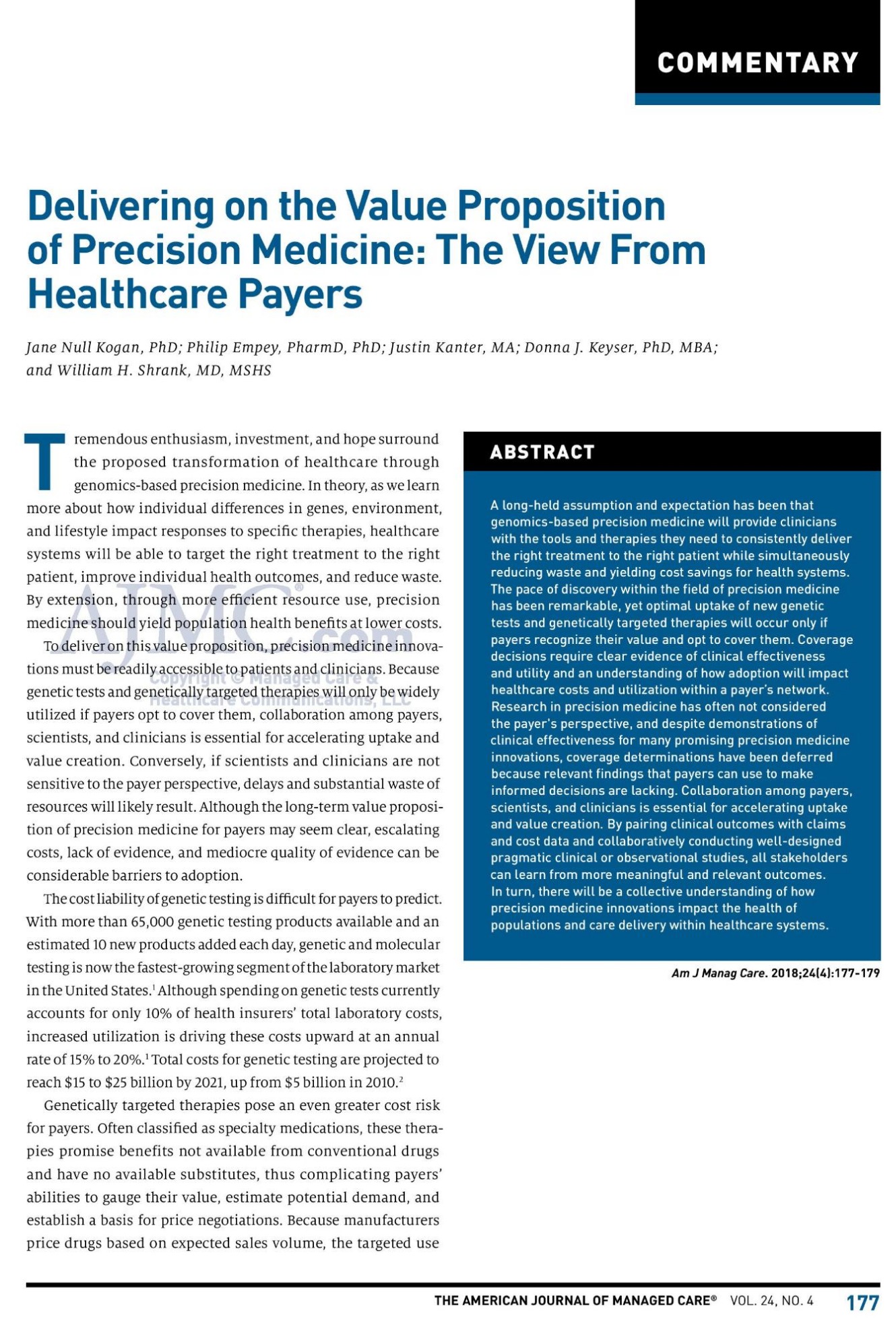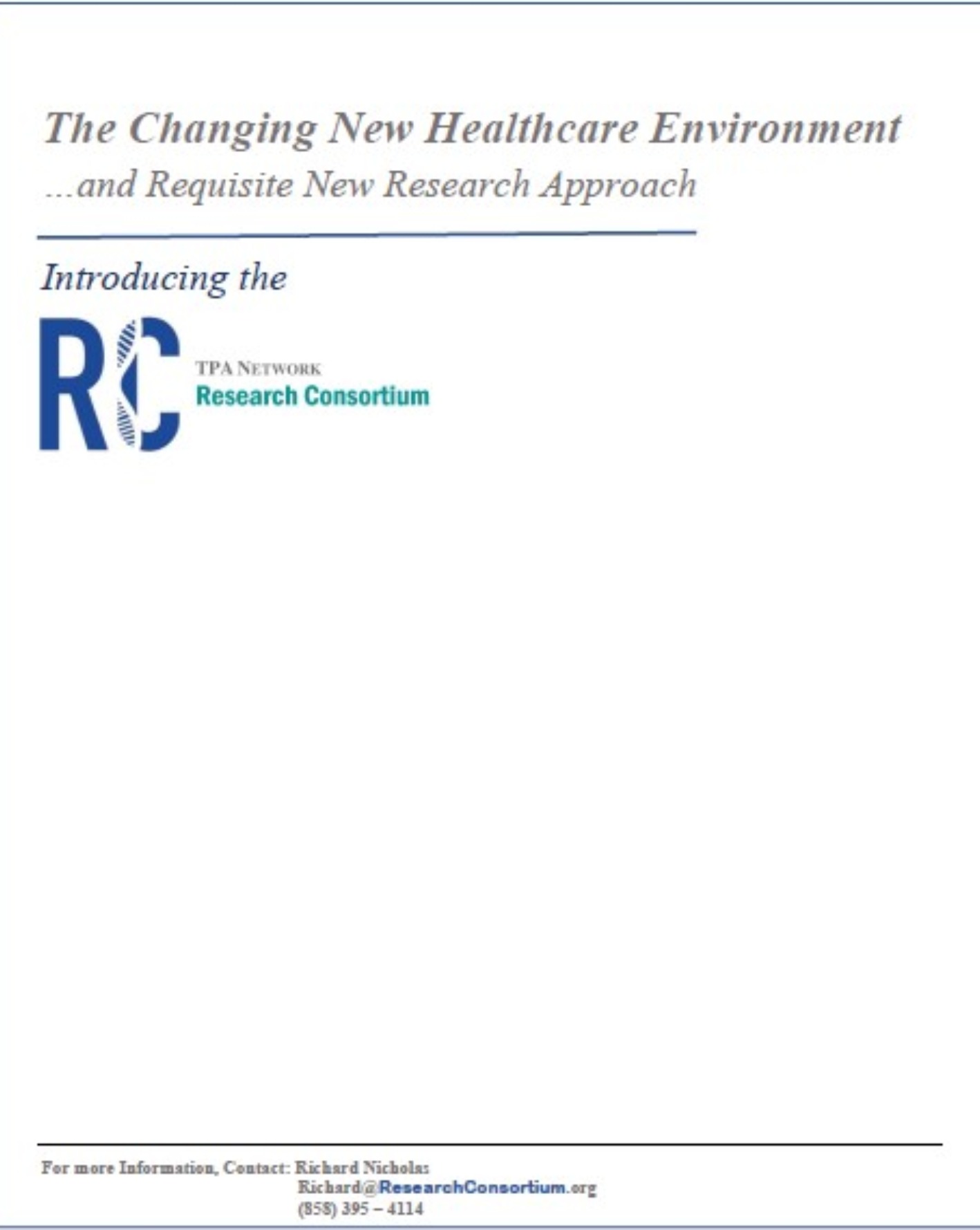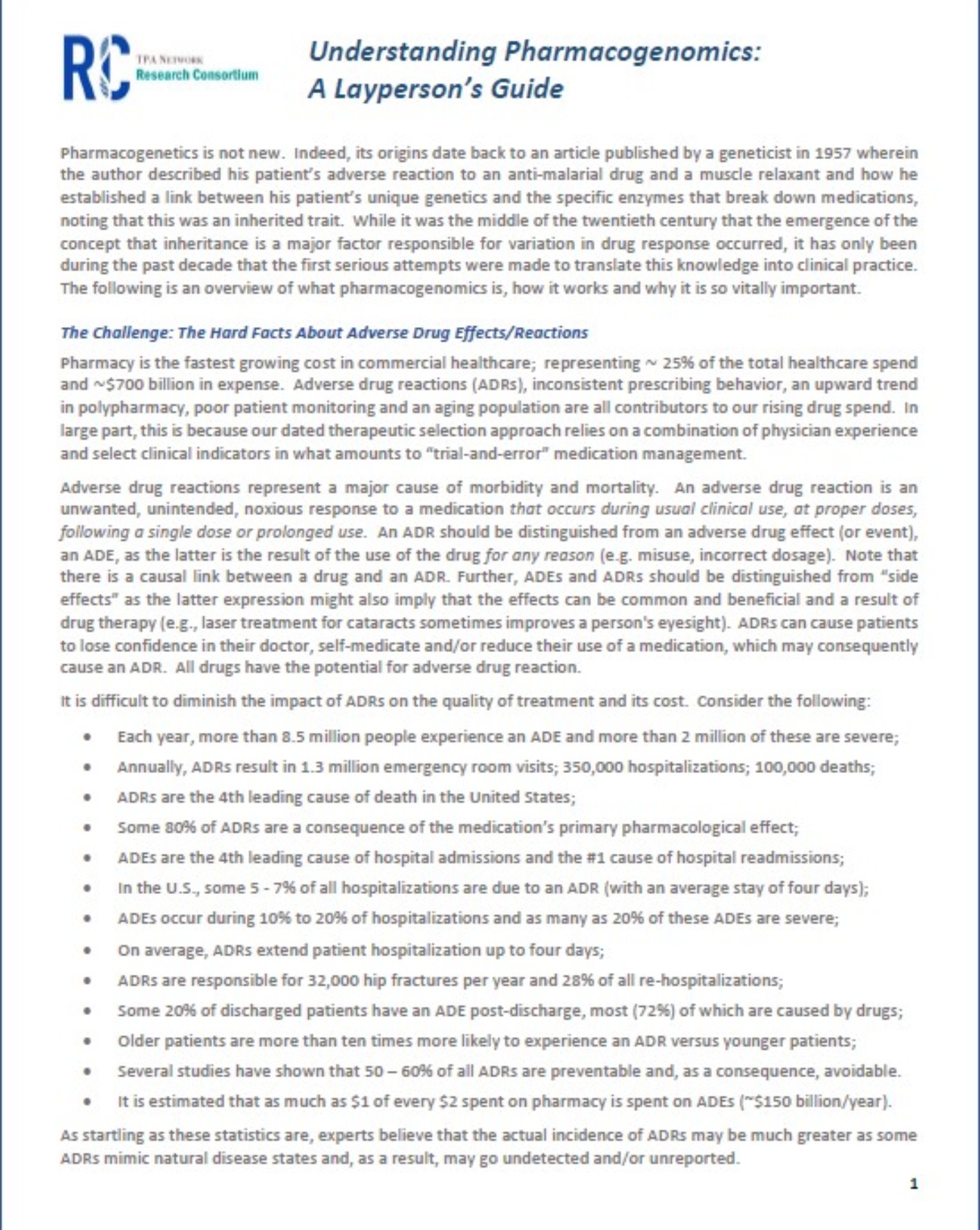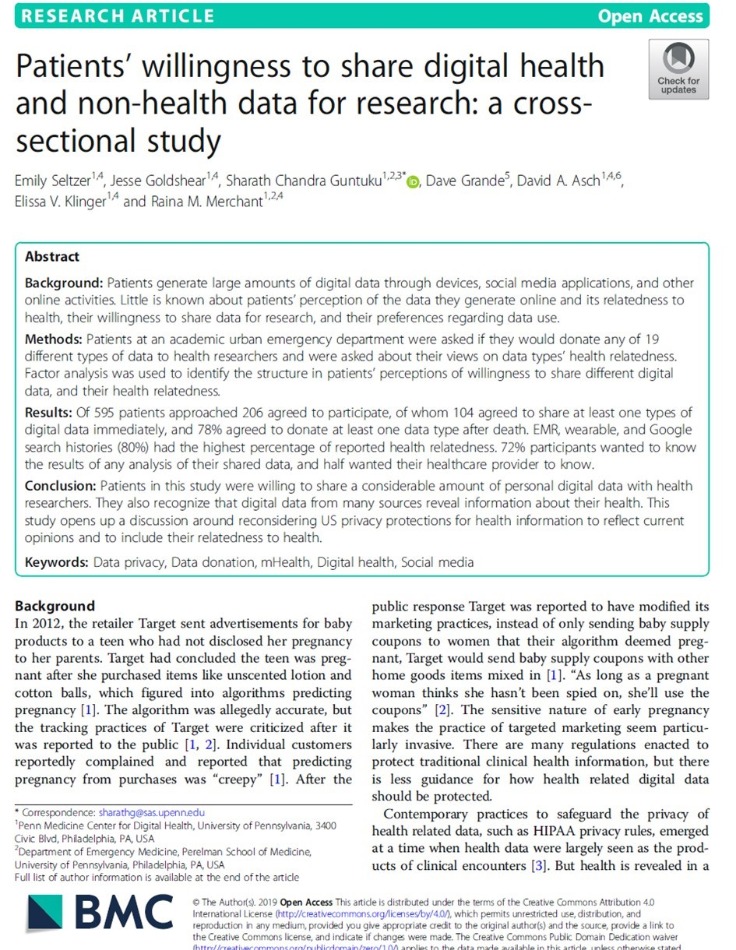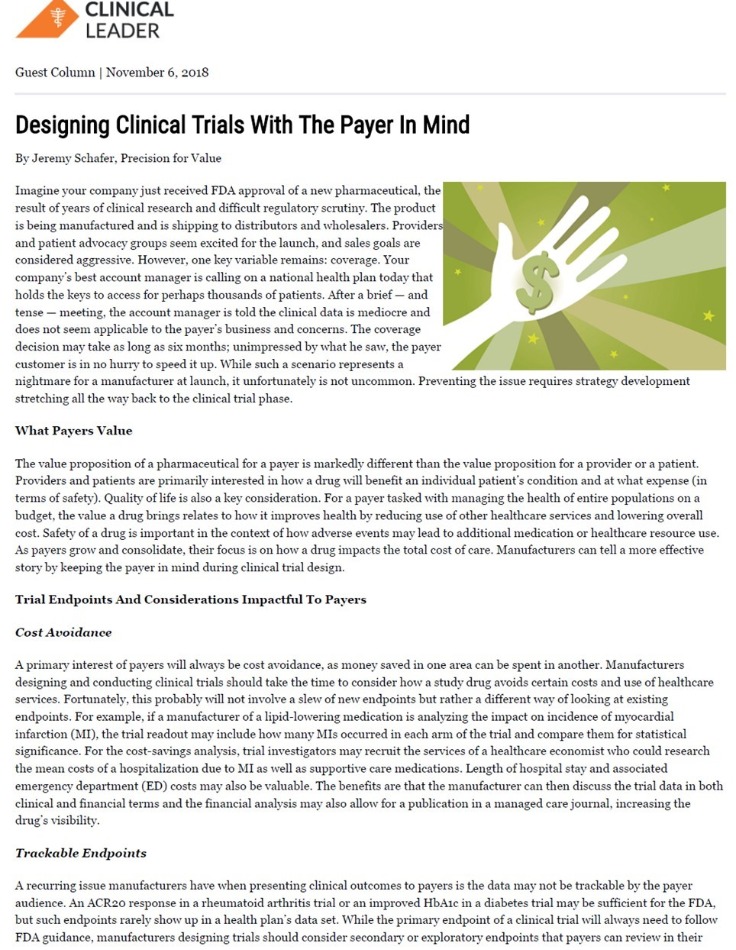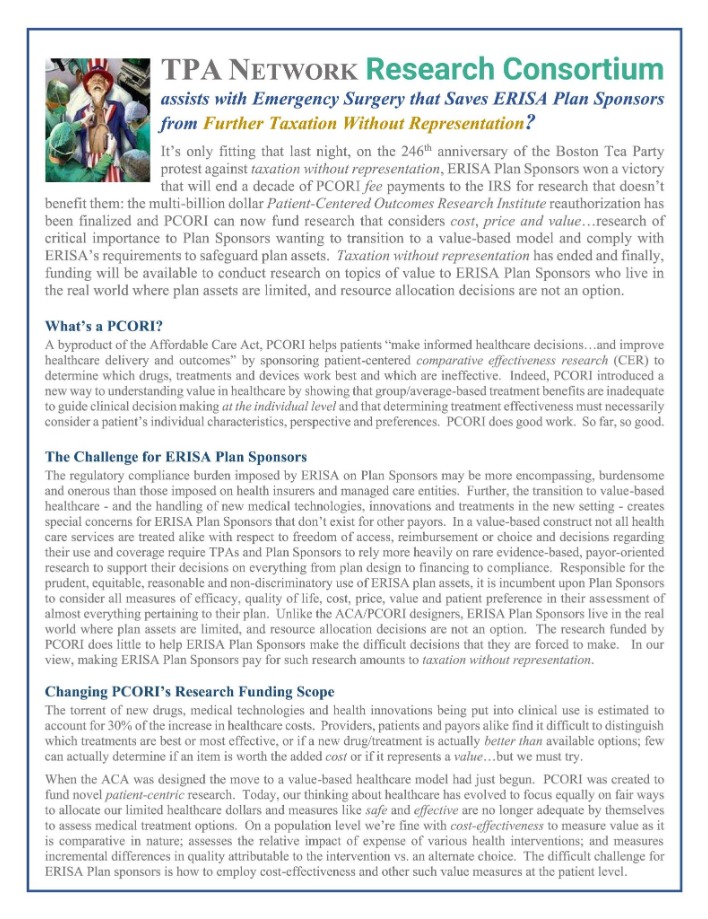Scholarly Articles, Research Studies and White Papers
Pre-Publication Release Date: March 2022
Recently conducted by the Research Consortium, this study challenges common misconceptions about combination cancer treatments, their cost and value. For the first time, it provides payers, providers and patients alike with important insight as to how they can better select cancer medications (that are likely to be more effective) and avoid enormously expensive, low-clinical-value medications that are wasteful.
This research has potentially serious implications as it relates to emerging new concept of "medical necessity" and the use of advanced AI-assisted technology for pre-authorizations and in the practice of medical care management / cost containment.
This study has been indexed and archived under the subject area Health Economics on MedRxiv and is available here.
This document describes the HERO Voluntary Healthcare Research Benefit which enables Plan Participants to access leading-edge care and advance medical research.
This article details why the scientific research used to prove the efficacy of precision medicine provides no evidence re: cost-effectiveness, ROI, value, outcomes, etc.
This document describes our perspective on the changing healthcare environment and why a new research approach is required to satisfy more advanced payor needs.
This document provides a detailed overview of the healthcare industry from a layperson's perspective and how we intend to conduct translational research.
This document provides an overview of precision medicine, pharmacogenomics (PGx) and the value and use of genetics/genomics in medical treatment.
The report summarizes research conducted to determine why, when and to what extent patients will share their health data with researchers and their health plan.
This article describes how researchers and payers are collaborating to design research studies that satisfy the needs of payers for evidence to warrant coverage.
This CBT Advisors white paper provides insight for investors re: translational research as a way to produce clinical, commercial and financial outcomes.
This SHYFT report is on Using Real-World Evidence to Optimize Clinical Trials(Improving Trial Design, Patient Recruitment, and Data Analysis)
This document describes our take on charging self-funded plans for a service that doesn't benefit them: broadening the PCORI Reauthorization Act of 2019.

